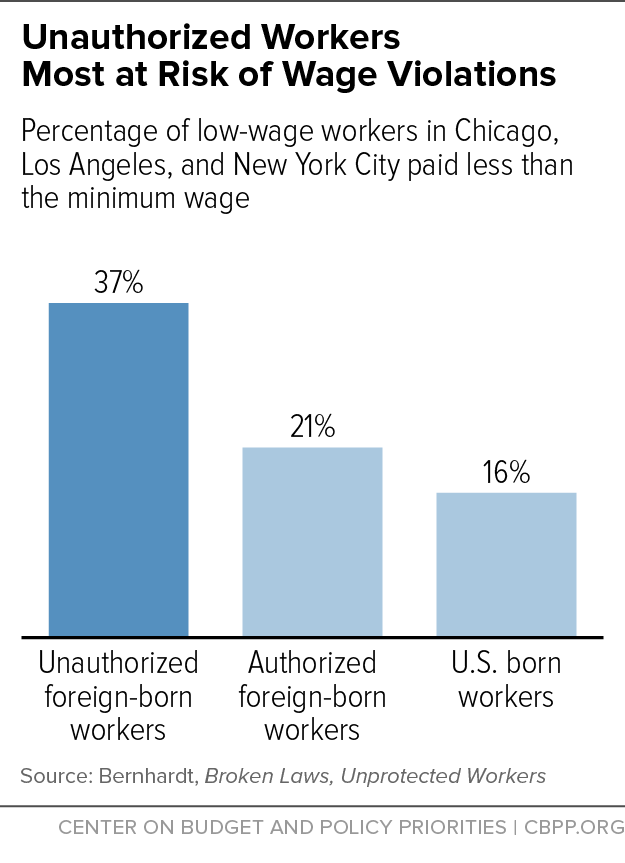BEYOND THE NUMBERS
Inclusive State Policies Can Benefit Unauthorized Immigrants and State Economies
More inclusive state proposals on unauthorized immigrants may gather momentum next year if the courts uphold President Obama’s executive actions allowing many to work legally in the United States. Our new paper highlights three sensible policies that can help produce a more educated workforce, ensure that more employers pay workers fairly, and generate more resources to pay for the schools and other public services that form a strong foundation for broadly shared prosperity:

- Strengthen enforcement of labor laws. Labor laws are critical to ensuring that workers receive the wages they are legally owed and contribute to the economy and state finances to the best of their ability. These laws also help put businesses and workers on a more level playing field. Businesses hiring unauthorized workers have a competitive advantage over businesses that don’t, partly because some businesses hire them at below-market wages (often below the minimum wage) and sometimes steal their wages altogether (see graph).
States can do more to address labor law violations by hiring more wage law enforcement agents, stiffening penalties for violations, and scrapping outdated rules that exclude certain categories of workers from full protection, such as domestic workers. - Allow unauthorized immigrant residents to pay in-state tuition at public colleges and universities and to obtain financial aid. States guarantee all children, no matter their immigration status, a place in their K-12 education systems — a wise choice that helps children reach their potential, giving the economy the educated workers of tomorrow. Similarly, states should give all resident college-bound youth access to their higher education systems at in-state tuition rates. States that enable more residents to get a college education will be better positioned to compete for high-wage jobs.
- Allow unauthorized immigrants to obtain driver’s licenses. Giving all immigrants access to driver’s licenses would help maximize the contributions of unauthorized immigrants to state economies and finances. With a license, immigrants can more easily get to work, shop, and drive their children to the doctor. They also have access to a wider array of jobs, helping them avoid exploitative employers and find jobs that more fully use their talents.
Policies like these enable unauthorized immigrants to earn more and contribute more to a state’s economy and tax base and encourage higher-quality jobs rather than a “race to the bottom” in wages and working conditions.
Unauthorized immigrants, of course, operate outside of the mainstream economy because the federal government hasn’t given them permission to work in the United States. States can’t change that, but they can take a “high road” approach to their economies and make efforts to maximize the contributions of all state residents, including unauthorized immigrants.

